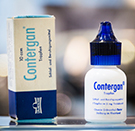Thalidomide: A Nightmare Revisited

It may be obvious that we need a reliable agency to vet the drugs that come onto the market, but the point is glaring when you revisit a case like the thalidomide disaster in Europe.
In 1957, thalidomide was a mild, over-the-counter sleeping pill, supposedly safe for pregnant women, that also reduced morning sickness. The German company Chemie Grnenthal aggressively marketed the drug in forty-six countries, even though the wife of an employee who took the drug before its release gave birth to a child with no ears.
Within two years, as many as a million West Germans were taking the drug daily as thousands of babies with severely malformed limbs were being born.
Though approved in Europe, thalidomide had far less impact in the U.S. thanks to Frances Oldham Kelsey with the Food and Drug Administration. She denied the drug a U.S. license because of insufficient clinical evidence about its side effects.
It wasn't long before adults began reporting symptoms of nervous system damage. Then two doctors independently linked thalidomide to birth defects in 1961, but it took the company four more months to pull the drug.
Health officials believe the drug caused more than 90,000 miscarriages, over 10,000 birth defects, and 40% of exposed babies died before or soon after delivery.
The thalidomide tragedy prompted major reforms in Europe and serves as a powerful reminder of the importance of drug regulations.
As for Dr. Kelsey, who largely kept the drug out of the U.S., President Kennedy awarded her the President's Medal for Distinguished Federal Civilian Service, the highest civilian honor.